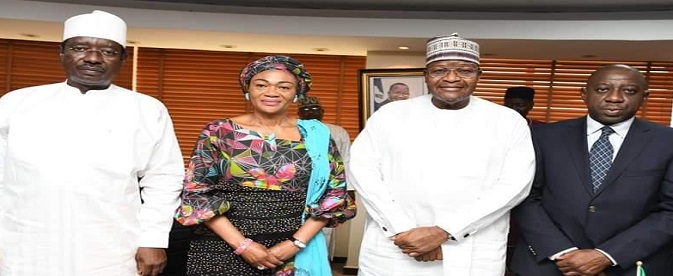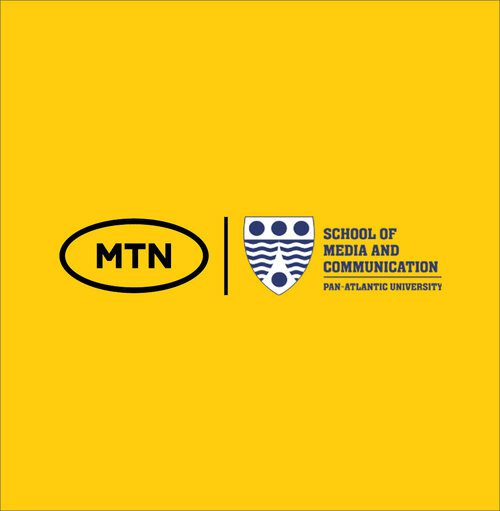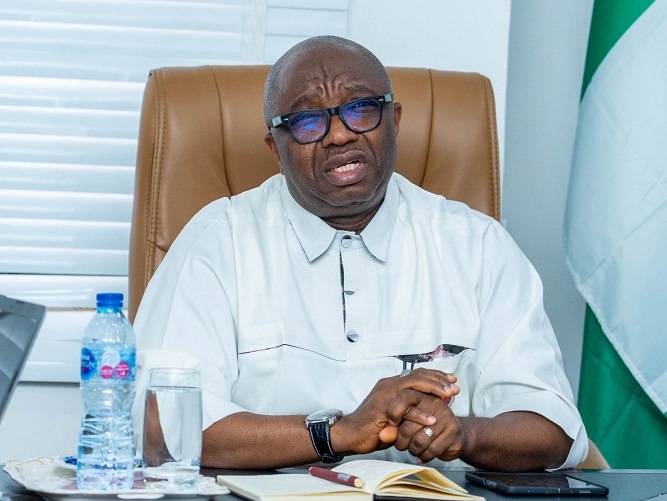Telecom
Senate Committee Commends NCC’s Regulatory Performance

Senate Committee on Communications said it was impressed by the various regulatory interventions which the Nigerian Communications Commission (NCC) has taken to ensure improved service delivery and bridging access gaps in the country.

L-R: Sen. Ibrahim Bomai, Vice Chairman, Senate Committee on Communications; Sen. Oluremi Tinubu, Chairman, Committee; Prof. Umar Danbatta, Executive Vice Chairman, Nigerian Communications Commission (NCC) and Mr. Adeleke Adewolu, Executive Commissioner, Stakeholder Management, NCC, during the familiarization and fact-finding tour of the Committee to the Commission in Abuja .
Senator Oluremi Tinubu, chairman of the Committee, who led other members of the Committee to NCC’s Head Office in Abuja on a familiarisation and fact-finding visit, said, given the mammoth of challenges facing the industry and the achievements of the Commission so far, its regulatory interventions and performance deserves to be appreciated and commended.
The Committee members were received by the Executive Management team of the Commission, led by Prof. Umar Danbatta, NCC’s executive vice chairman (EVC), who provided a detailed briefing of the Commission’s core mandates, its various initiatives that have helped to improve wider access to telecommunications as well as the challenges in the regulatory environment, which formed the basis for the comments made by the Committee members.
“We are here on a familiarisation and fact-finding tour to the Commission but I must say that we are impressed by the presentation made by the Executive Vice Chairman of NCC, Prof. Umar Danbatta, on the activities of the Commission so far in regulating the industry.
“We particularly see the Platinum Category Certificate of Award for exceptional organisational performance which NCC received from the Bureau of Public Service Reforms (BPSR) in 2017 as a testament to your recognition as a performing agency of the Federal Government. However, we want you to do more for Nigerians, ” Tinubu said.
Earlier, while addressing the Committee members, Danbatta reeled out industry statistics which, irrefutably captured the growth recorded in the industry.
According to him, Nigeria attained and surpassed 30 percent broadband penetration target in December, 2018 and the penetration has further increase to 38.49 per cent as of December, 2019.
Also, Danbatta said the number of active phone lines has increased to over 185 million; active Internet subscriptions on global system for mobile communications (GSM), fixed wired and voice over internet protocol (VoIP) networks have equally increased to over 126 million.
The EVC added that teledensity is 96.76 per cent, and quarterly contribution of telecoms to gross domestic product (GDP) has reached 10.60 per cent. The NCC, through the Universal Service Provision Fund (USPF) has reduced the number of access-gaps clusters in the country further from 114. Hitherto, some 38 million Nigerians were affected by access gap clusters.
Danbatta explained to the Committee what the Commission has done, so far, with respect to spectrum administration in the sector.
He stated that despite the crucial role of spectrum, and being a scarce resoure, the Commission has deployed spectrum quite effectively for the development of the telecom industry.
Some of the clear goal-oriented programmes in that regard include development of spectrum trading, ongoing effort to leverage Television White Space (TVWS) to address rural connectivity, the Proof of Concept (PoC) non-commercial trial of Fifth Generation (5G) networks, and development guidelines on commercial satellites deployment.
Danbatta stated that the Commission’s efforts in licensing Infrastructure Companies (InfraCos) to cascade fibre optic into the hinterland to reach all the 774 Local Government Areas (LGAs) in the country, is succeeding and will bolster government’s effort at expanding the nation’s broadband infrastructure.
The EVC recalled various inter-agency collaborations, frequent engagement of state governments to discuss issue of Right of Way (RoW), multiple regulations, taxation and other challenges, are consciously articulated towards improving deployment of telecoms infrastructure to ensure improved services for the telecom consumers.
The Commission, Danbatta said, has also issued various Directions to Mobile Metwork Operators (MNOs) with respect to roll-over data and forceful subscriptions to ensure that consumers are not shortchanged by market forces.
Similarly, Danbatta said the introduction of Do-Not-Disturb (DND) 2442 Short Code to manage unsolicited messages, the Toll-Free Number (622) for the escalation of complaints and the 112 Emergency Communication Number which is connected to the Emergency Communication Centres (ECCs), are conscious policies put in place to ensure that the rights of telecom consumers are safeguarded and to ensure that Nigerians enjoy derivable benefits of new communication technologies.
At the moment, eighteen (18) states of the Federation currently have operational ECCs while the efforts are ongoing by the Commission to ensure ECCs are operational in the remaining states in the country.
The EVC also told the Committee members that the Commission is instrumental to the listing of MTN and Airtel on the Nigeria Stock Exchange (NSE); resolved N1.03 trillion fine against MTN; promoted the Code of Corporate Governance in the industry from voluntary to mandatory compliance; developed new numbering plan to enhance opportunities for emerging technologies; and restructured the telecoms value-added services (VAS) segment resulting in licensing of 10 VAS aggregator companies,
Danbatta, who appreciated the support of the National Assembly so far, however, listed key issues affecting the regulatory environment. These, he said, include power, which is the biggest challenge facing telecommunications operations in the country; multiple regulations and multiple regulations; security challenges, vandalism and theft of telecom installations and transmission cable cuts; as well as RoW issue.
The Committee members assured NCC of their readiness to support the regulatory efforts of the Commission through legislative intervention and other collaboration towards addressing the challenges in the regulatory environment.
They also urged the NCC to focus more on increased access across the country as well as ensuring affordability of telecoms services for Nigerians.
Telecom
How MIP Is Making a Difference in The Media Landscape

MTN Media Innovation Program (MIP), a six-month fully-funded certificate fellowship designed for media professionals, is redefining journalism and content creation in Nigeria.

Now in its fourth year, MIP, launched by MTN Nigeria in partnership with the School of Media and Communication (SMC), Pan-Atlantic University, is empowering journalists, broadcasters, and content creators with the tools to adapt, innovate, and thrive in today’s challenging media landscape.
Despite promising forecast that the market value of the Nigerian entertainment and media industry will grow from US$9.0bn in 2023 to US$13.6bn in 2028, the media sector has since grappled with issues such as limited access to training, financial instability, and the rapid decline of traditional revenue models. With digital platforms disrupting how news is consumed and monetised, journalists and media owners must rethink their approach.
MIP provides a structured learning environment where media professionals gain first-hand exposure to new industry trends, digital transformation, and the intersection of media and ICT. From data journalism to audience engagement strategies, participants leave the program with actionable skills that are shaping the future of storytelling in Nigeria.
A standout feature of MIP is its international study visit to South Africa, where fellows engage with leading media institutions, visit MTN Group’s headquarters, and participate in hands-on training sessions at the University of Johannesburg. This global exposure provides invaluable insights into how media practitioners in other markets are leveraging technology and innovation to stay ahead.
For many participants, this has been a career-defining experience. Juliet Tontoye, Vice-President, MIP Cohort 3, describes the program as ‘a turning point.’ “When we share our experiences with our colleagues at our respective media houses, we realize that the program’s benefits and impact are easier to experience than explain. In the past three months, MIP has been such an eye-opening journey. It’s a fellowship every media professional needs to experience. MTN has been such a wonderful host and we know this costs millions of Naira. However, we believe it will have a profound impact on our colleagues.”
Beyond individual impact, MIP is helping reshape the media industry by fostering collaboration and leadership. By bridging the gap between traditional journalism and digital innovation, the program ensures that fellows graduate not just as better storytellers, but as industry disruptors with a mission to create lasting change. The program’s 60 alumni, now spread across Nigeria’s top media organisations, are applying their knowledge to revolutionise newsrooms, create digital-first content strategies, and introduce sustainable business models.
According to Tobechukwu Okigbo, Chief Corporate Services & Sustainability Officer, MTN Nigeria: “When we launched MIP in 2022, our goal was to enhance media professionals’ reporting capabilities and deepen their understanding of the technology sector, empowering them to become true media innovators. Seeing the impact of the programme over the past three years has been both inspiring and humbling. We are proud to continue this initiative and invite all eligible media professionals and content creators to seize this opportunity by applying for the fourth cohort.”
Similarly, the Dean of the School of Media and Communication, Pan-Atlantic University, stated: “SMC will leverage its extensive experience in training media professionals to equip this next cohort. And we will do this with our usual emphasis on creativity and ethics.”
With over 60 fellows trained since its inception in 2022, MIP is building a network of media advocates who are championing ethical reporting, storytelling innovation, and the smart use of technology in journalism.
MTN Nigeria has invested over NGN 300 Million in building Nigeria’s media industry in the past three years through its partnership with PAU.
As applications open for the 2025 cohort, the program continues to attract top-tier talent eager to take their careers to the next level and contribute to the transformation of Nigerian media.
For journalists, broadcasters, and content creators looking to future-proof their careers, the MTN Media Innovation Program is more than just a fellowship—it is a movement that is reshaping the industry, one fellow at a time.
Interested journalists, bloggers, and content creators can apply for the MIP 2025 at https://bit.ly/MTN_MIP2025.
Telecom
Nigeria Heads Anglophone Data Protection Committee

Dr. Vincent Olatunji, Chief Executive Officer of the Nigeria Data Protection Commission, has been appointed as the Chair of the Anglophone Countries Committee of the Network of Africa Data Protection Authorities (NADPA).

The appointment, confirmed on April 2, underscores Nigeria’s leadership in Africa’s data privacy efforts. Speaking after his confirmation, Olatunji urged members to prioritize collective efforts in protecting the privacy rights of over 1.4 billion Africans.
Meanwhile, Nigeria will host the 2025 NADPA Annual General Meeting and Conference in May. Themed “Balancing Innovation in Africa: Data Protection and Privacy in Emerging Technologies,” the event will showcase Nigeria’s strides in digital economy development under President Bola Ahmed Tinubu’s administration.
Telecom
NCC Asks Consumers to Monitor Data Usage to Authenticate Consumption

Nigerian Communications Commission (NCC) has charged the over 174 million telecoms subscribers in the country to constantly monitor their data usage to authenticate their consumption level.

This follows concerns being raised by telecoms consumers about the rapidity of data depletion on their devices.
The Commission particularly enjoined the consumers to always contact their service providers to make requests for cases of discrepancies noted in their data usage.
While the consumers are expected to contact their service providers to request for their usage history/statement where inconsistency exists in their data usage as first step, the Commission said they may also escalate such issues to the Commission through its toll-free Number 622 and social media platforms, especially if their requests are not satisfactorily handled.
The Commission, which also made some clarifications regarding the concerns being raised by the consumers around data usage, said the need to inform the consumers on their concerns is part of its commitment to protect and appropriately inform and educate the telecom consumer on industry issues.
Making further clarifications around data speed and usage, the Commission said data speed is the speed at which data is transferred between two devices, measured in megabits per second (Mbps or mbps), stressing that given the spread of Internet services and the immense investment in the sector, data rates have continued to increase and users may be unaware of how to measure data speed.
The telecoms regulator explained further that websites such as www.fast.com also provide an easy way for consumers to measure Internet speed on any device at any location.
“The higher the data speed, the quicker pages load-downloads and uploads-occur and expectedly, the quicker data bundles are exhausted. So, as telecom consumers are able to do more on devices in less time, some consumers’ devices & network service providers make it possible to limit data speed to help users manage data usage better.
“In any case, most devices now include functions to measure data used by devices and it is imperative that users monitor same to authenticate data usage, such as applications left running on devices. Therefore, where discrepancies occur users may contact their service provider to request for their usage history/statement. If request is not dealt with satisfactorily then, users can contact NCC by calling 622 or engage the Commission via its social media platforms”.
It added that the data usage experience is a function of location, network equipment and users connected in a particular location.

 Broadcasting2 days ago
Broadcasting2 days agoDStv Revenue Plunges as MultiChoice Loses Nearly 4m Subscribers

 Telecom2 days ago
Telecom2 days agoNCC Asks Consumers to Monitor Data Usage to Authenticate Consumption

 News1 day ago
News1 day agoNIPSS Projects Petrol Prices to Hit ₦750/Litre Before Year’s End!

 Telecom2 days ago
Telecom2 days agoPhone Theft: AMCODET Urges Mandatory Registration @ Point of Purchase

 News2 days ago
News2 days agoTikTok Sale Deal Expected Before April 5 Deadline – Trump

 News2 days ago
News2 days agoQuestions Over House of Reps Threat to Arrest NIMC DG

 E-Financial2 days ago
E-Financial2 days agoFidelity Bank Records a 210.0% Growth in PBT to N385.2bn

 Telecom2 days ago
Telecom2 days agoCassava and Microsoft Boost Youth Employment in Green Tech






















